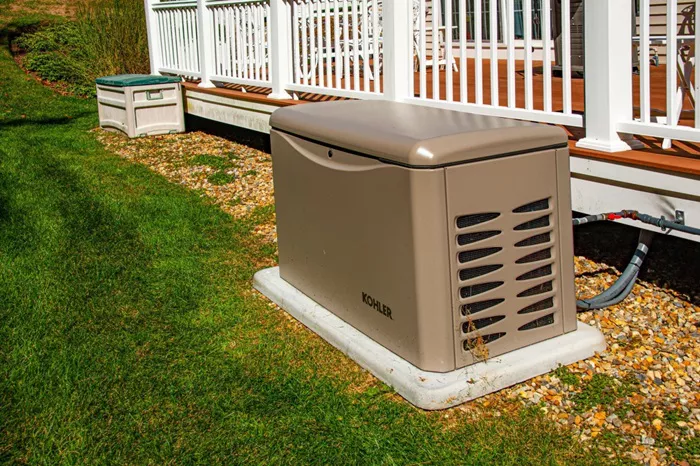Power outages can happen at any time due to storms, grid failures, or maintenance work. Having a reliable home generator ensures that your essential appliances keep running, providing comfort and safety. But with so many types and models available, how do you choose the right one? This guide will help you understand the different types of generators, their features, and how to pick the best one for your home.
Types of Home Generators
Portable Generators
Portable generators are the most common choice for temporary power needs. They run on gasoline, propane, or diesel and can power essential appliances like refrigerators, lights, and small electronics.
Pros
- Affordable
- Easy to move and store
- Good for short-term outages
Cons
- Require manual setup
- Limited power output (usually 3,000–8,500 watts)
- Produce exhaust fumes (must be used outdoors)
Best for: Small homes, camping, or emergency backup for a few appliances.
Inverter Generators
Inverter generators are a more advanced type of portable generator. They produce clean, stable electricity, making them safe for sensitive electronics like laptops and smartphones.
Pros
- Quiet operation
- Fuel-efficient
- Lightweight and portable
Cons
- Higher cost than standard portable generators
- Lower power output (typically 1,000–4,500 watts)
Best for: RVs, outdoor events, and homes with sensitive electronics.
Standby Generators
Standby generators are permanently installed outside a home and automatically turn on during a power outage. They run on natural gas or propane and can power an entire house.
Pros
- Automatic operation
- High power output (7,500–20,000 watts or more)
- No need for refueling (if connected to a gas line)
Cons
- Expensive upfront cost
- Requires professional installation
- Takes up permanent space
Best for: Large homes, areas with frequent power outages, and critical medical equipment.
Solar Generators
Solar generators use solar panels to charge batteries, providing clean and renewable energy. They are silent and emission-free.
Pros
- No fuel costs
- Environmentally friendly
- Low maintenance
Cons
- Limited power output
- Dependent on sunlight
- High initial cost
Best for: Eco-conscious homeowners, off-grid living, and supplemental backup power.
How to Choose the Right Generator for Your Home
Determine Your Power Needs
Before buying a generator, calculate the total wattage of the appliances you want to run. Add up the starting (surge) and running watts of each device.
Example
- Refrigerator: 800 running watts / 1,200 starting watts
- Lights: 100 watts
- Sump pump: 1,500 running watts / 3,000 starting watts
- Total needed: At least 4,800 watts to handle startup surges.
Choose the Right Fuel Type
Gasoline: Easily available but has a short shelf life.
Propane: Stores longer but may require large tanks.
Diesel: Efficient but noisy and expensive.
Natural Gas: Convenient if you have a gas line.
Solar: Renewable but weather-dependent.
Consider Runtime and Efficiency
- Portable generators may run for 8–12 hours on a full tank.
- Standby generators can run indefinitely if connected to a gas line.
- Inverter generators are more fuel-efficient than traditional models.
Noise Level
Standby generators: 60–70 decibels (similar to a dishwasher).
Inverter generators: 50–60 decibels (quiet conversation).
Portable generators: 65–75 decibels (loud, like a lawnmower).
If noise is a concern, choose an inverter or standby model.
Installation & Maintenance
- Portable generators require manual setup.
- Standby generators need professional installation.
- Regular maintenance (oil changes, filter cleaning) is necessary for all types.
Safety Tips for Using a Home Generator
Never run a generator indoors –: Carbon monoxide poisoning is a serious risk.
Use heavy-duty extension cords : Ensure they are rated for outdoor use.
Ground the generator : Follow manufacturer instructions to prevent electric shocks.
Store fuel safely : Keep gasoline and propane away from heat sources.
Install a transfer switch : Prevents backfeeding, which can harm utility workers.
Conclusion
Choosing the right generator for your home depends on your power needs, budget, and how often you experience outages. Portable generators are great for occasional use, while standby generators provide seamless backup for entire homes. Inverter generators are ideal for sensitive electronics, and solar generators offer a green alternative. By assessing your requirements and following safety guidelines, you can find the perfect generator to keep your home powered during emergencies. Would you like recommendations for specific brands or models? Let us know in the comments!

